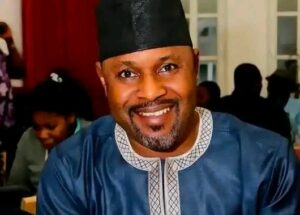Coup Saga: Rwanda, Cameroon Make Major Military Changes

Rwanda and Cameroon, in reaction to the spread of military coups on the African continent, have taken proactive steps by reshuffling defence portfolios.
The most recent coup took place in Gabon on Tuesday night, where the military sacked President Ali Bongo from power and placed him under house arrest.
Cameroon President, Paul Biya, made major changes to the country’s ministry of defence on Wednesday.
Some of the posts that were reshuffled include the defence delegate to the presidency, the staff of the air force, the navy, and the police.
In 1982, a coup d’état brought Biya to power. Reports of tyranny and breaches of human rights tarnished his early years in power.
The 90-year-old has held the position of president ever since he came to power, even though he later permitted multiparty elections in the nation.

ALSO READ: TIMELINE: List of coups, coup attempts in Africa since 2015
Shortly after the coup in Gabon, the Rwandan Defence Force (RDF) said on X, the social media network formerly known as Twitter, that President Paul Kagame had authorized the retirement of 83 top officers, including James Kabarebe, the senior presidential advisor on security issues.
Their sudden retirement was not explained, but it is believed to be an effort to halt the current wave of military coups sweeping over the African continent.
The RDF said that Kagame also gave his approval for the promotion and appointment of other officers to take the place of the outgoing office holders.
Meetings with Rwanda’s Chief of Defence staff, the ambassador of the United Arab Emirates (UAE) to Rwanda and the defence attaché of Cameroon were also conducted to explore how “to enhance defence cooperation between their respective countries.”
Due to constitutional changes that were made in 2015, Kagame can continue serving as president until 2034.
One of Africa’s longest-serving presidents, the 65-year-old has been in office since 2000.
The decisions of Kagame and Biya to reshuffle their militaries came a few hours after soldiers seized power in Gabon, punctuating the 53-year hold on the throne by President Ali Bongo’s family.
The election in which Bongo had just been re-elected to a third term in office in the Central African nation was described as “fraudulent” by the opposition.







